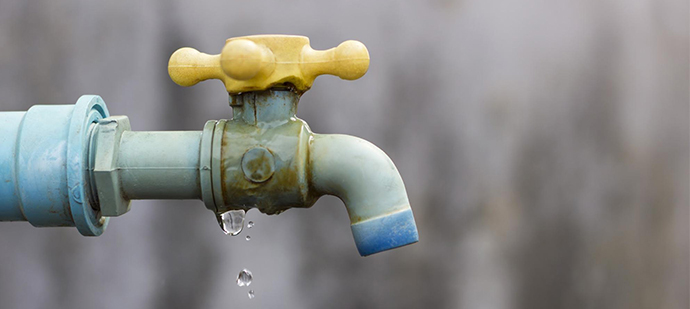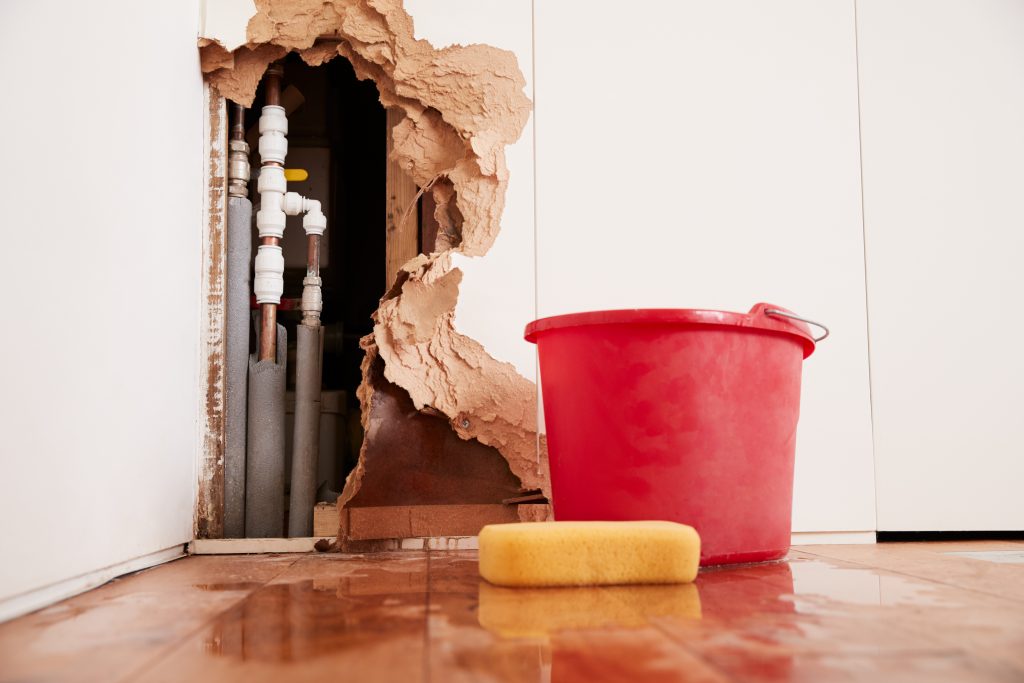6 Ways to Find Concealed Water Leaks in Your House
6 Ways to Find Concealed Water Leaks in Your House
Blog Article
They are making a few great annotation regarding Finding hidden leaks as a whole in this article down below.

Early detection of dripping water lines can mitigate a prospective disaster. Some small water leakages may not be noticeable.
1. Examine the Water Meter
Every home has a water meter. Examining it is a guaranteed manner in which helps you find leakages. For starters, shut off all the water resources. Ensure nobody will certainly flush, utilize the tap, shower, run the washing device or dish washer. From there, go to the meter as well as watch if it will certainly transform. Since no one is using it, there need to be no movements. If it moves, that shows a fast-moving leakage. Similarly, if you detect no changes, wait an hour or more as well as inspect back once more. This means you may have a slow leak that might also be underground.
2. Examine Water Intake
If you spot abrupt adjustments, regardless of your usage being the same, it means that you have leakages in your plumbing system. An abrupt spike in your expense suggests a fast-moving leak.
Meanwhile, a consistent rise monthly, despite having the exact same routines, shows you have a sluggish leakage that's also slowly intensifying. Call a plumber to completely check your residential property, particularly if you really feel a warm area on your flooring with piping underneath.
3. Do a Food Coloring Examination
When it pertains to water consumption, 30% originates from bathrooms. Examination to see if they are running appropriately. Drop flecks of food shade in the storage tank and wait 10 minutes. There's a leakage between the storage tank and also bowl if the shade somehow infiltrates your bowl throughout that time without flushing.
4. Asses Outside Lines
Do not forget to check your outside water lines as well. Must water permeate out of the link, you have a loosened rubber gasket. One little leakage can throw away tons of water and spike your water bill.
5. Assess the scenario and also evaluate
Homeowners should make it a habit to examine under the sink counters as well as also inside cupboards for any type of bad odor or mold growth. These two warnings show a leakage so punctual interest is needed. Doing routine evaluations, also bi-annually, can conserve you from a significant issue.
Inspect for stainings as well as weakening as the majority of devices and pipelines have a life expectations. If you think dripping water lines in your plumbing system, don't wait for it to rise.
Early detection of dripping water lines can mitigate a prospective disaster. Some small water leaks may not be noticeable. Checking it is a proven way that helps you find leakages. One tiny leakage can waste lots of water and also spike your water costs.
If you suspect leaking water lines in your plumbing system, do not wait for it to rise.
WARNING SIGNS OF WATER LEAKAGE BEHIND THE WALL
PERSISTENT MUSTY ODORS
As water slowly drips from a leaky pipe inside the wall, flooring and sheetrock stay damp and develop an odor similar to wet cardboard. It generates a musty smell that can help you find hidden leaks.
MOLD IN UNUSUAL AREAS
Mold usually grows in wet areas like kitchens, baths and laundry rooms. If you spot the stuff on walls or baseboards in other rooms of the house, it’s a good indicator of undetected water leaks.
STAINS THAT GROW
When mold thrives around a leaky pipe, it sometimes takes hold on the inside surface of the affected wall. A growing stain on otherwise clean sheetrock is often your sign of a hidden plumbing problem.
PEELING OR BUBBLING WALLPAPER / PAINT
This clue is easy to miss in rooms that don’t get much use. When you see wallpaper separating along seams or paint bubbling or flaking off the wall, blame sheetrock that stays wet because of an undetected leak.
BUCKLED CEILINGS AND STAINED FLOORS
If ceilings or floors in bathrooms, kitchens or laundry areas develop structural problems, don’t rule out constant damp inside the walls. Wet sheetrock can affect adjacent framing, flooring and ceilings.
https://www.servicemasterbyzaba.com/blog/how-to-detect-water-leakage-in-walls/

We were introduced to that write-up about Hacks to detect leaks from a good friend on our other website. I beg you set aside a second to share this post if you appreciated it. I take joy in reading our article about Locating water leaks.
Report this page